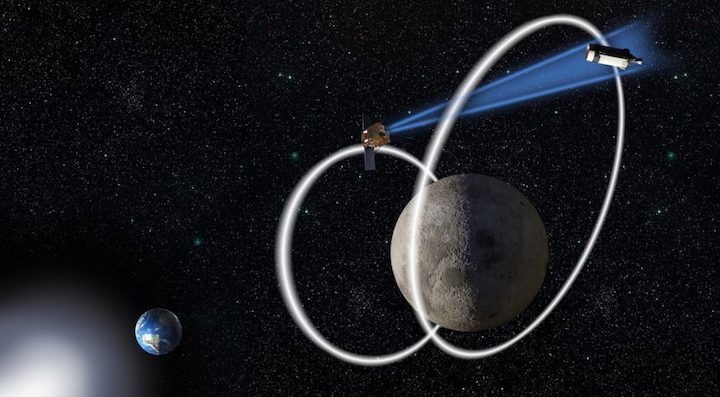25.06.2021

WASHINGTON — A new report published by the Air Force Research Laboratory suggests the U.S. Space Force has to prepare for a day when the moon and the volume of space around it could become the next military frontier.
“A Primer on Cislunar Space” was released June 23 by AFRL’s Space Vehicles Directorate. Its intended audience are military space professionals who one day might have to develop spacecraft and concepts for operations in regions beyond Earth’s orbit.
Col. Eric Felt, the director of AFRL’s Space Vehicles Directorate, said the document aims to “educate and inspire.”
“Operating spacecraft beyond geosynchronous Earth orbit poses unique challenges,” Felt said in a statement. “As commerce extends to the moon and beyond, it is vital we understand and solve those unique challenges so that we can provide space domain awareness and security.”
Cislunar space generally is defined as the region that contains the Earth, moon, and Lagrange points where spacecraft may be deployed in the future if a cislunar economy emerges.
The report was written by C. Channing Chow, CEO of Cloudstone Innovations; Marcus Holzinger, associate professor of aerospace engineering at the University of Colorado Boulder; and Peter Garretson, a consultant at the American Foreign Policy Council.
AFRL has long been a proponent of advancing research on cislunar space. The Space Vehicles Directorate last year announced it will fund an experiment to investigate technologies to monitor cislunar space. The experiment was named CHPS, for Cislunar Highway Patrol System.
One of the concerns is developing technologies for surveillance, navigation and communications in cislunar space.
A cooperative agreement signed by the Space Force and NASA last year calls for future collaboration on cislunar space research and technologies.
Quelle: SN
